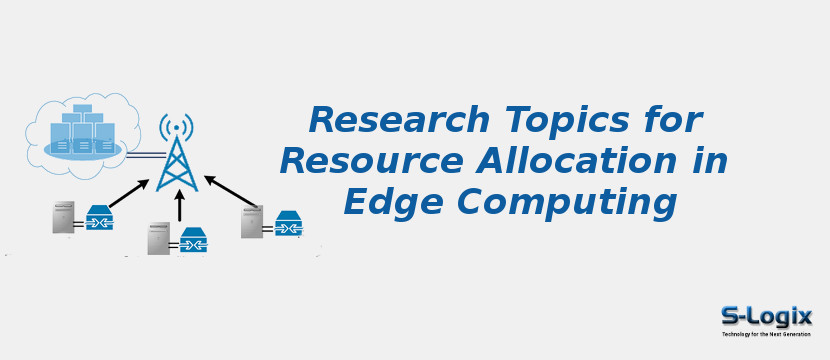Resource allocation in Edge Computing is assigning and managing the available computing, storage, and network resources in a distributed and decentralized manner to ensure the efficient execution of applications and services at the Edge of the network.
The resource allocation strategy in Edge Computing is essential for ensuring efficient and effective use of resources and maintaining high-quality user experiences for applications that demand real-time data processing and low-latency response.
The motive is to verify that the resources are optimally utilized along with satisfying the computational requirements of the applications and meeting the desired Quality of service(Qos). Resource allocation involves load balancing, scheduling, and network management to provide low latency and high reliability.
• Dynamic Resource Allocation: Resources are allocated dynamically based on the changing computational requirements of applications and services. The approach is useful in Edge Computing environments as the resource requirements of applications can change frequently.
• Location-Based Resource Allocation: Resources are allocated based on the location of Edge devices, taking into account the available resources, network conditions, and quality of service requirements.
• Hybrid Resource Allocation: Both centralized and decentralized resource allocation techniques are used, with a central coordinator responsible for high-level resource allocation and Edge devices responsible for local resource management.
• Centralized Resource Allocation: A central controller or coordinator allocates resources to Edge devices based on their computational requirements. The approach is useful in small-scale Edge deployments where the number of Edge devices is limited.
• Decentralized Resource Allocation: Each Edge device manages its resources and communicates with other devices to coordinate resource allocation. The approach is useful in large-scale Edge deployments with many Edge devices.
• QoS-Aware Resource Allocation: Resources are allocated based on the Quality of Service (QoS) requirements of applications and services, analyzing that the computational resources are used effectively to meet the desired QoS levels.
• Task-Oriented Resource Allocation: Resources are allocated based on the specific tasks or applications executed at the Edge. The approach is useful in Edge Computing environments where different applications have different resource requirements.
• Reduced Network Load: Processing data locally at the Edge, the load on the core network is reduced, improving network performance and reducing the risk of congestion.
• Better User Experience: Resource allocation in Edge Computing provides a better user experience by ensuring high-quality service for applications that demand real-time processing and low-latency response.
• Reliability: Utilizing multiple distributed resources, Edge Computing provides increased reliability and fault tolerance, reducing the risk of single points of failure.
• Reduced Latency: Bringing computation closer to the network-s edge, Edge Computing reduces data processing and communication latency, enabling real-time response for applications that require low latency.
• Limited Resources: Edge Computing devices may have limited computational, storage, and network resources, limiting the scalability and performance of applications and services.
• Security Concerns: Security can be a concern in Edge Computing, as sensitive data may be stored and processed on Edge devices, increasing the risk of data breaches and cyber-attacks.
• Cost: The cost of deploying and managing Edge Computing devices and infrastructure can be high, especially in large-scale deployments.
• Heterogeneous Resource Management: Managing diverse and heterogeneous resources at the Edge can be challenging, as different Edge devices may have different capabilities, configurations, and requirements.
• Network Latency and Bandwidth Constraints: The limited bandwidth and high latency of Edge networks can affect the performance of resource allocation algorithms and the execution of applications and services.
• Real-Time Requirements: Edge Computing often involves real-time data processing and low-latency response, making it challenging to allocate resources effectively to meet the demands of time-sensitive applications.
• Real-Time Resource Allocation: Research will focus on developing real-time resource allocation algorithms that respond quickly to changing resource requirements and ensure low-latency processing at the Edge.
• Energy-Efficient Resource Allocation: Research in this area will focus on developing energy-efficient resource allocation algorithms to optimize energy use at the Edge, ensuring that devices are used effectively and efficiently.
• Artificial Intelligence and Machine Learning: Artificial Intelligence (AI) and Machine Learning (ML) techniques can improve resource allocation algorithms, allowing for more effective and efficient allocation of resources in Edge Computing environments.
• Edge-Cloud Integration: Research in this area will focus on integrating Edge Computing and cloud computing to ensure seamless and efficient resource allocation across the Edge and cloud.
• Task-Oriented Resource Allocation: Investigating task-oriented resource allocation algorithms that can allocate resources based on the specific tasks or applications being executed at the Edge.
• Location-Based Resource Allocation: Investigating location-based resource allocation algorithms that can allocate resources based on the location of Edge devices, considering the available resources, network conditions, and quality of service requirements.
• QoS-Aware Resource Allocation: Investigating QoS-aware resource allocation algorithms that can allocate resources based on the Quality of Service (QoS) requirements of applications and services, ensuring that the computational resources are used effectively to meet the desired QoS levels.
• Dynamic Resource Allocation: Investigating dynamic resource allocation algorithms that can adapt to changing resource requirements and ensure effective utilization of resources in Edge Computing environments.
